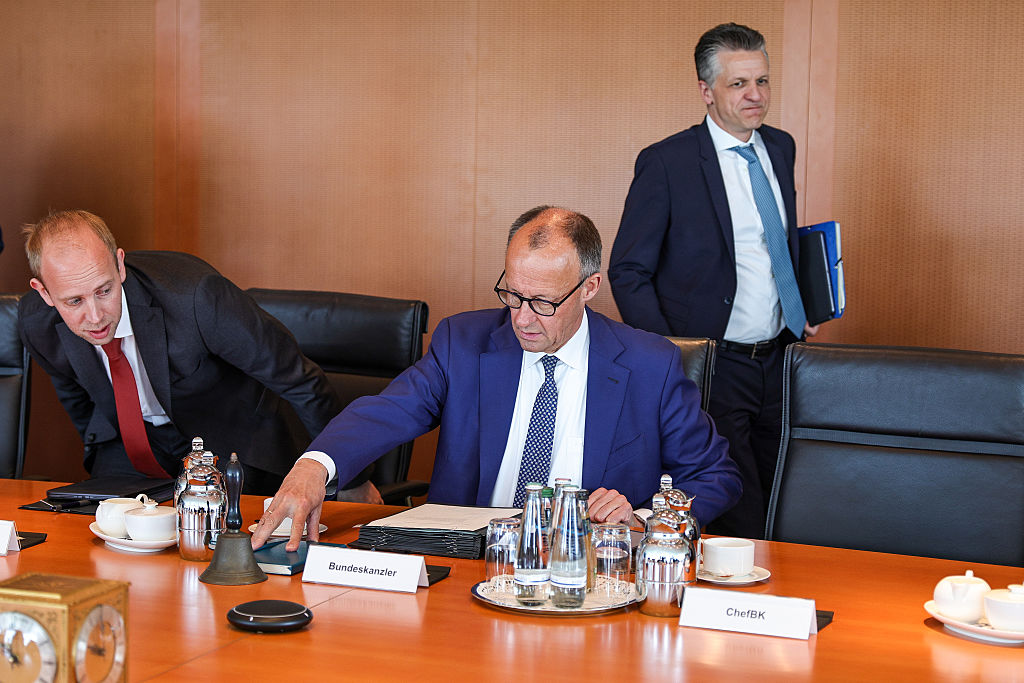Beate Meinl-Reisinger, Austria’s foreign minister, has accused State broadcasting behemoth ORF of deliberately cutting a passage from a television interview in which she demanded that Hamas release the Israeli hostage it is still holding almost two years after the October 7 attacks.
On July 22, Meinl-Reisinger appeared on ORF’s main evening news show Zeit im Bild to talk about the controversial joint statement by 28 Western foreign ministers that demanded an immediate ceasefire in the Gaza strip.
The interview was recorded before the show.
On July 23, at 9am, Meinl-Reisinger posted a link to an “uncut” version of her interview on Spotify, writing: “Why ever, exactly my comment that the war in Gaza would end immediately if Hamas released the hostages had been cut from the interview.”
She added: “I think this is important because such an important foreign policy topic should not serve as a pretext for trying to highlight supposed domestic policy differences.”
The Liberal politician alluded to accusations that her signing of the joint statement had not been agreed upon with her small Neos party’s two coalition partners, the Conservative Austrian People’s Party (ÖVP) and the Social Democratic Party of Austria (SPÖ).
On July 23, though, Austria’s chancellor Christian Stocker (ÖVP) and Vice Chancellor Andreas Babler (SPÖ) demonstratively stood behind Meinl-Reisinger in an effort to quell rumours about internal strife in the shaky three-party coalition.
As reported on July 22 by the newspaper Kurier, Meinl-Reisinger’s signature under the statement – which was rejected by Israel but warmly welcomed by terrorist group Hamas – had raised eyebrows even in parts of her own foreign ministry.
She was also criticised by Jewish organisations. Israel’s ambassador to Austria, David Roet, told newspaper Die Presse: “Publishing this statement at such a sensitive time does not bring us any closer to a ceasefire. On the contrary, it encourages and emboldens the Hamas terrorists.”
Austria’s Israel policy has shifted markedly under Meinl-Reisinger. As opposed to her predecessor Alexander Schallenberg (ÖVP), she has often vocally criticised Israel for supposed human rights violations.
Critics have accused Meinl-Reisinger of trying to cozy up to Arab and other Muslim states in an effort to get support for her campaign for a seat in the UN Security Council.
Daniel Kapp, a former spokesman for several ÖVP politicians, wrote on X on July 21 that he did not understand Meinl-Reisinger’s policy on Israel anymore.
After telling Israeli FM presenter Gideon Sa’ar that Austria was “a friend of Israel’s”, she then went on to sign a document “together with the biggest Israel-haters that Europe has to offer: Ireland, Spain, Slovenia, and [Belgian] EC commissioner Hadja Lahbib”, Kapp said.
Brussels Signal reached out to Meinl-Reisinger’s office but had not heard back at the time of writing.
The joint statement was signed by the foreign ministers of the UK and 21 European Union member states as well as a number of other Western nations including Canada, Australia, and Switzerland.
The US and Germany notably declined to sign the letter.





